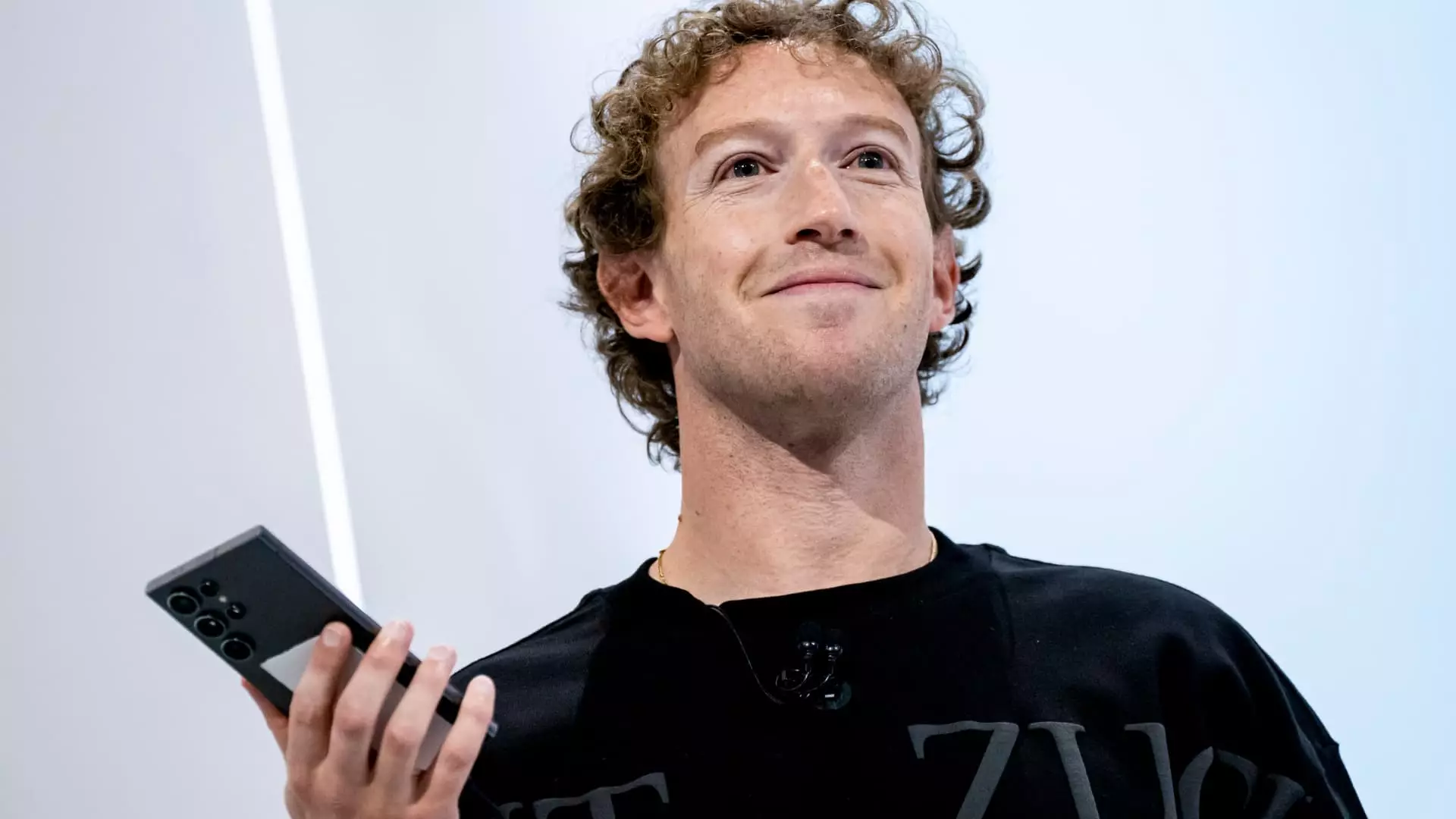In a recent episode of the “Joe Rogan Experience,” Meta CEO Mark Zuckerberg directed a critical eye towards Apple, a company he views as faltering in its commitment to innovation and fair business practices. His comments not only shine a light on Apple’s alleged stagnation, but they also reveal the competitive tensions within the tech industry, particularly between two of its largest players—Meta and Apple.
Zuckerberg acknowledged the positive impact of Apple’s flagship product, the iPhone, on global connectivity. He credited the device with democratizing access to technology, enabling tremendous advancements in various sectors. Yet, he juxtaposed this achievement against what he perceives as a lack of substantial innovation from Apple in the years since Steven Jobs introduced the revolutionary smartphone.
According to Zuckerberg, the iPhone landscape has shifted from groundbreaking innovation to a state of complacency. He stated, “It’s like Steve Jobs invented the iPhone, and now they’re just kind of sitting on it 20 years later.” This critique raises an important question about the nature of technological advancement: is maintaining market dominance synonymous with continued innovation? Zuckerberg’s frustrations reflect a sentiment that as tech companies mature, they may prioritize profit margins over customer engagement by adopting more defensive strategies regarding product development.
In his critique, Zuckerberg pointed to the financial strategies that Apple employs, specifically the infamous “30% tax” on developers who create apps for the iOS ecosystem. He contended that this tax, alongside the limitations imposed on third-party developers, essentially stifles competition. According to him, this monopoly-like control allows Apple to profit significantly without delivering substantial advancements in user experience.
Zuckerberg argued, “They build stuff like AirPods, which are cool, but they’ve just thoroughly hamstrung the ability for anyone else to build something that can connect to the iPhone in the same way.” This restriction, he posits, is not merely about safeguarding consumer privacy and security—as Apple suggests—but rather serves as a tool for self-preservation of its market position. This leads to the disconcerting reality where innovation comes at the expense of competition, thus compelling consumers into a singular product ecosystem.
While Apple prides itself on prioritizing user privacy and security, Zuckerberg opined that this narrative is flawed. He suggested that the very concerns around security that Apple invokes as reasons for limiting third-party accessory compatibility could be viewed as a self-imposed barrier. “It’s insecure because you didn’t build any security into it,” he stated. Such an observation proves illuminating; if Apple were to overhaul its security protocols rather than restricting access to its products, it could potentially expand its ecosystem while fostering trust in the developer community.
This complex relationship between security and accessibility reveals an area ripe for exploration. Can a balance be achieved where user safety is upheld without sabotaging the competitiveness of the app market? If Zuckerberg’s analysis holds merit, Apple has room for growth in this sector, which could be crucial not only for developers but also for end-users who crave diversity in product offerings.
Meta’s Position in the Market: Competing Amidst Criticism
Zuckerberg did not shy away from addressing Meta’s own position within the tech landscape. He mentioned Apple’s Vision Pro headset and its lackluster performance, suggesting that Meta’s own virtual reality offerings are more aligned with consumer needs. This juxtaposition further emphasizes the escalating rivalry between the two companies, as well as Zuckerberg’s intent to define Meta not merely as a social media entity but as a leading player in the VR and AR markets.
While he expressed a degree of understanding for Apple’s challenges with the Vision Pro, he stressed that “the V1, it definitely did not hit it out of the park.” This type of commentary serves a dual purpose: it highlights Apple’s struggles while simultaneously positioning Meta as a more innovative alternative in emerging technologies.
Zuckerberg’s public critique of Apple is not just an expression of competition; it underscores a broader conversation regarding innovation in the tech industry. As the landscape becomes increasingly polarized between industry giants, the expectations for each to not only sustain but to actively push boundaries become paramount. As Zuckerberg suggests, the onus lies with Apple to reassess its strategies and focus on a balance between security and accessibility, lest it risk falling further behind in a rapidly evolving market. Whether Apple will heed this challenge remains a pivotal question for the future of tech development and consumer engagement.


Leave a Reply